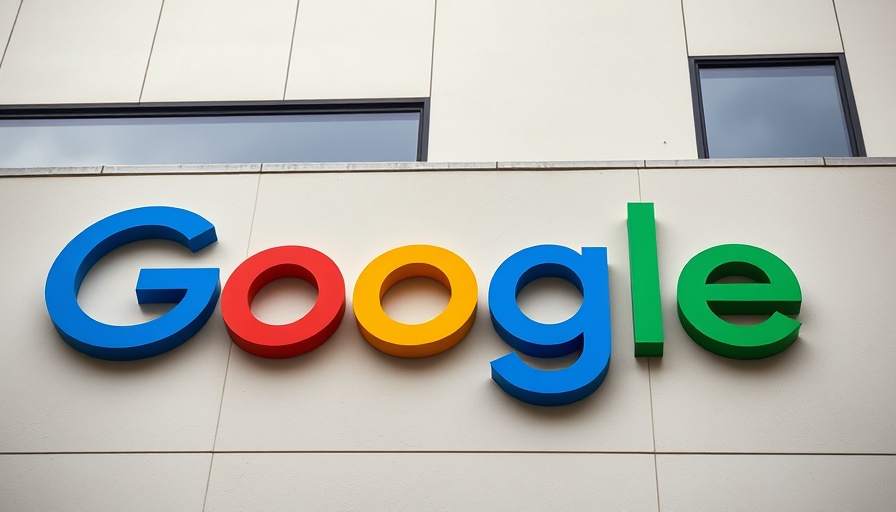
Understanding the Implications of EU's DMA Charges Against Google
The European Union has formally charged Google with violations of the Digital Markets Act (DMA) for allegedly favoring its own services in search results and imposing restrictions on app developers in Google Play. As this complex event unfolds, there's a pressing need for marketers to grasp what these implications might mean for their strategies in the European market.
The Core of the Controversy: Are Google's Practices Fair?
Central to the EU's findings is the accusation that Google continues to prioritize its own services over competitors, undermining fair competition. According to EU regulators, despite tweaks made to its algorithm, Google's persistent preference for its own offerings—such as Google Shopping and other verticals—suggests a blatant disregard for the level playing field the DMA aims to establish. For many marketers, this situation may resonate as their clients find it increasingly difficult to achieve visibility, resulting in frustrations that have now found recognition at the highest regulatory levels.
Impact on App Developers: A Shifting Landscape
Another significant area of concern for the EU is Google Play. The Commission's findings indicate that Google restricts developers' abilities to direct users towards alternative channels for purchases, which can limit consumer choice and inflate costs. Should this finding be enforced, it may pave the way for app developers to forge new connections with users, lessening dependency on the Google Play marketplace. This reworking of the market dynamics could usher in a new era of app marketing, where competitiveness is driven more by innovation than by platform gatekeeping.
What Changes Might We Anticipate?
If the charges are confirmed, digital marketing strategies in Europe could experience seismic shifts. Here’s what marketers should keep an eye on:
- Increased Visibility for Competitors: As Google may need to reduce the prominence of its branded services, businesses could see better rankings and visibility for their offerings on search engines.
- Enhanced Opportunities for Alternative Channels: With looser restrictions on how apps can inform users about purchase options outside of the Play Store, marketers might develop innovative promotional strategies that enhance user engagement.
- Legislation Shaping Market Dynamics: The results of these regulatory actions could set a precedent for future action against monopolistic practices in digital spaces across the globe.
Google's Response: A Robust Defense
In light of these allegations, Google has publicly contested the Commission's findings. The tech giant has articulated that enforcing the DMA’s rules could counterintuitively harm both European businesses and consumers by reducing the quality and security of their offerings. Google emphasizes that regulatory changes have already adversely affected traffic, pushing users toward inefficiencies.
The Bigger Picture: Future Considerations
The conflict between Google and EU regulators is not just a legal battle; it's reflective of the broader challenges that digital giants face in adapting to increasing scrutiny in their practices. As consumers become more informed, the push for transparent competition is more relevant than ever. For marketers and app developers, this turning point creates both challenges and opportunities to innovate and seek alternative strategies to engage consumers.
Why This Matters for Your Marketing Strategy
Understanding the potential consequences of the EU’s findings against Google can provide marketers with insights that could be crucial for navigating the upcoming changes in the digital landscape. Staying ahead in this evolving environment requires agility and foresight.
As marketers, being informed about these shifts in regulatory frameworks not only helps in strategizing effectively but also ensures compliance with future norms that shape the industry. Keep an eye on these developments—they could very well define the next chapter of digital marketing.
 Add Row
Add Row  Add
Add 






Write A Comment